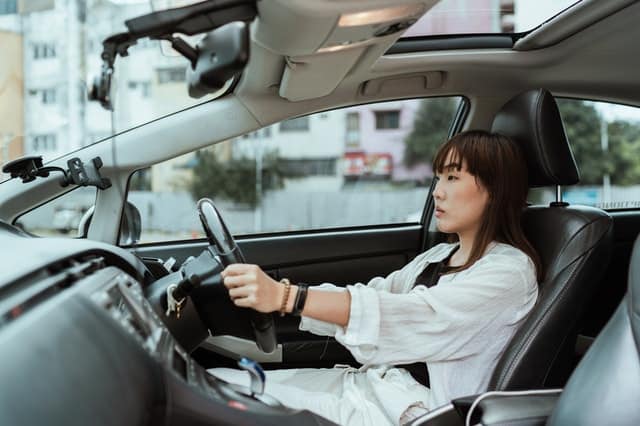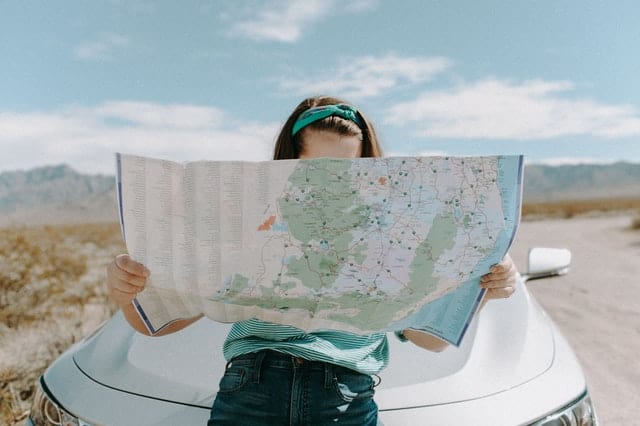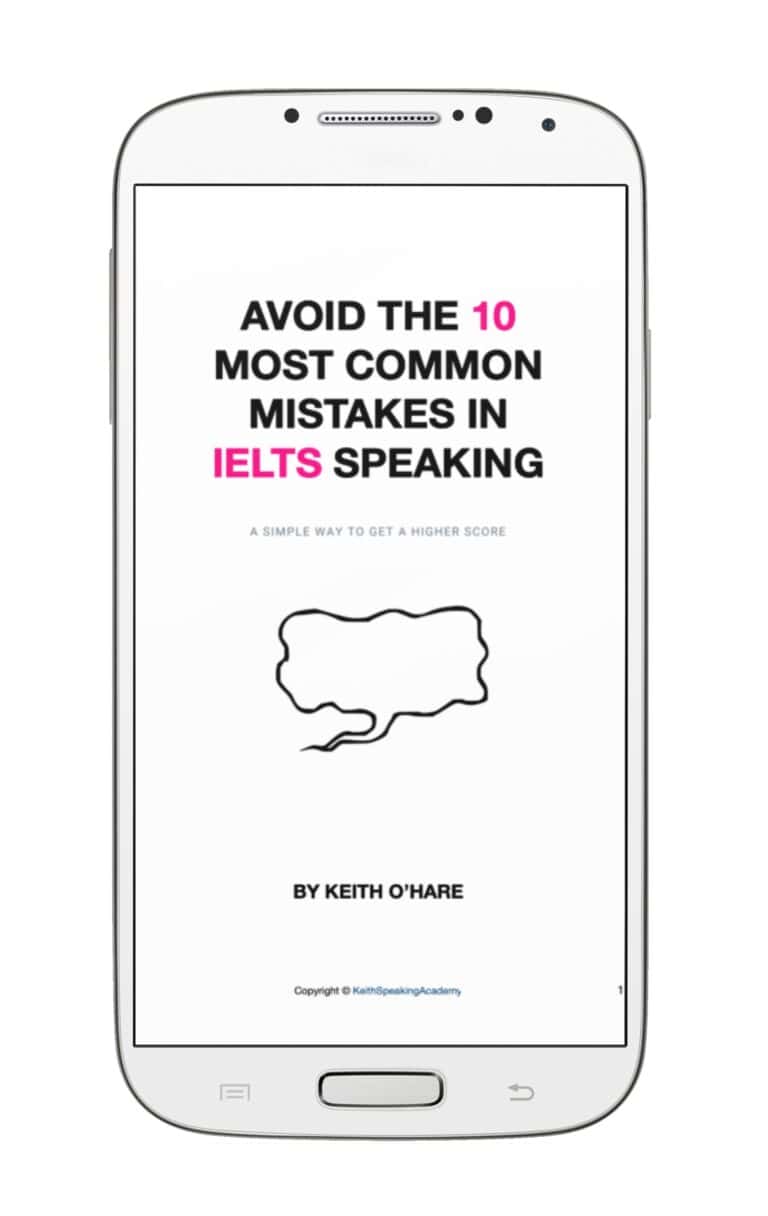Download this IELTS Speaking Lesson PDF
For the topic of Transport in IELTS Speaking, you may need to talk about public and private transport, as well as how you think transport will change in the future.
This lesson will give you exactly the language and idioms you need to talk fluently on the topic of transport in the IELTS Speaking test.
Keith O'Hare
What you will learn
Transportation Vocabulary IELTS
When it comes to transport, in IELTS Speaking you may be asked about both public and private transport and the differences, giving examples.
Here is some essential vocabulary for that.
Public transport (open to the general public – usually with schedules, regular routes and you pay a fee)
We can also refer to public transport as –
Public transportation
Public transit
Examples:
- Buses
- Trains
- Monorails and tramways
- Light rail
- Subways / The Underground / The Tube (London) / The Metro
- Taxi – tuku – rickshaw – cab – über
- Cable cars
- Rented Bikes
- Ferries, ships, boats
Examples:
- Car
- Bicycle
- Scooter / moped / motorbike
- Boat (own)
- Horse
- Rollerskates / skateboard
In the lesson we listened and identified the different means of transport / travel. Notice the grammar and prepositions we can use to talk about different kinds of transport.
- I took / got a boat / ship / ferry / train
- She caught the Subway / Underground / train
When actually boarding a vehicle we can say:
- She got into her car / taxi
- I got on the bus / train / plane
Generally speaking we can use travel by
- She was lucky enough to travel by helicopter
- I like to travel by train, taxi, car, plane….
When a means or transport is leaving we can say:
- The plane took off (and later landed) / departed
- The train / coach left / departed at 6 p.m.
Collocations
Get stuck in the traffic = cannot move because there is a traffic jam
I hate being stuck in traffic
A travel itinerary = the route of the trip
I want to travel abroad (v.)
Domestic travel (n.)
I travel back and forth to somewhere (= go between 2 places many times)
I live in Spain, but I travel back and forth to England twice a year.
I like to travel light = I don’t take many suitcases with me
Phrasal Verbs
To get around = to move around (a city)
I get around my city by car most of the time.

Getting Around your Hometown
Here are some nice phrases you can use to answer this question
- I tend to move around by bus, it’s really cheap and convenient.
- I typically walk everywhere. I live in a small city so it’s easy to get around on foot.
- I don’t like driving because there are too many cars.
- It’s congested = too many cars = a lot of traffic jams
- There many cars in the rush hour (= peak time people go to work)
- Cars are bumper to bumper (=close together and so cannot move)
- Infrastructure (n. / uncountable) = roads, buildings, bridges
- It’s a nightmare = a terrible thing
- Pedestrian area (a pedestrian is a person who walks)
- Walking is so easy and a pleasure because we have so many pedestrian areas.
Delays When Travelling
- I get (on) the train to Wales = take / travel by train
- The hassle of driving = the stress and trouble
- I was held up in traffic and missed the flight
- I missed the plane = I was late and didn’t catch it
- It was a disaster = a terrible thing
- I got my money back in the end
The following both mean arrive well before the necessary time
- Arrive in plenty of time
- Arrive with time to spare
IELTS Speaking Topic: Transport in the future
Here are some phrases you can use to discuss this subtopic
- I suppose electric cars will be more popular
- I suspect cars running on gas will be a thing of the past
- Electric vehicles = without gas or petrol
- With climate change getting worse, more and more transportation will run on electricity
- Everything is going in that direction
- Driverless cars = cars without a driver
- Hire a car = rent a car
- Licences will become redundant – we don’t need them anymore
- Manual cars = cars driven with a gearstick (opposite is automatic car)
- A pain in the ass = a big problem
- When it becomes mainstream – popular in everyday usage
- I might start using a driverless car, when they become mainstream
- It would make all the difference = it would have a big impact
Idioms to talk about Transportation
My wife is a backseat driver = someone who doesn’t drive, but tells the drive how to drive!
At last, I am in the driver’s seat = to be in control
I got to the train station in the nick of time = just in time
We made it to the airport on time by the skin of our teeth = just managed to do it (often meeting a deadline)
It’s already 6 o’clock and time we hit the road = to leave / start a journey
I have itchy feet = I love travelling / I want to travel
I have to get up at the crack of dawn = very early

Students' Questions about Transport
Keith, what type of transport is very popular in your country?
It’s a good question. I think, in my country, I mean talking about England; probably the trains are one of the most popular kinds of transport.
Lots of people like to take the train, the inter-city rail system.
It’s relatively cheap although, unfortunately the trains are notorious for (= famous for something bad) being late and I think that lack of punctuality is a
real downside for catching the train. Despite that, it’s still a very popular way of getting around the country.
More IELTS Speaking live lessons for you
If you liked this lesson, leave a comment below!
There are more lessons you can follow in the links below too.
TECHNOLOGY in IELTS Speaking. How to talk about technology, the internet and artificial intelligence.
HOLIDAYS in IELTS Speaking. Discover the 10 things the British do on holiday and learn the useful vocabulary and idioms to talk about it.
CITIES in IELTS Speaking. Learn how to introduce your city, as well as talk about advantages and disadvantages of living in cities.

